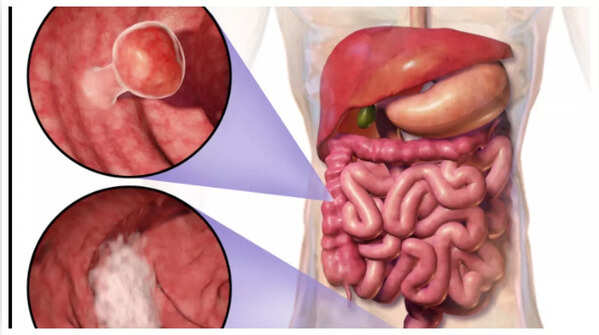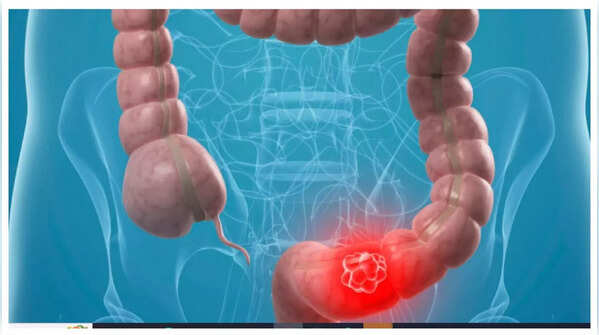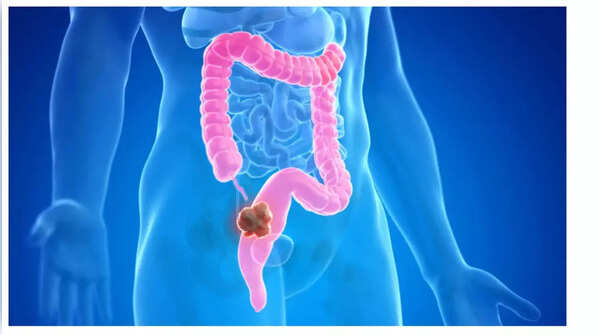Colon cancer, also known as colorectal cancer, is a serious disease that begins in the colon or rectum. It often develops from small, noncancerous clumps of cells called polyps, which can become cancerous over time. While most cases occur randomly, factors like family history, obesity, and lifestyle can increase the risk. It's crucial to recognize early symptoms, which can be subtle and easily overlooked.

A key early indicator of colon cancer is a change in bowel habits. This can manifest as:
While these changes may seem minor and can be attributed to diet, stress, or infections, persistent bowel changes lasting more than a few days warrant medical attention. These changes may indicate a growing tumor disrupting normal bowel movements.

The presence of blood in stool is a symptom that should never be ignored. It can appear as:
In some cases, the bleeding may be minimal and undetectable to the naked eye, leading to anemia over time. While blood in the stool can result from various conditions like hemorrhoids or infections, ruling out colon cancer is crucial, especially if it occurs repeatedly or alongside other symptoms.

Persistent abdominal discomfort is another frequently dismissed early symptom. This can include:
Such discomfort is often mistaken for indigestion or minor digestive problems. However, if the pain is persistent and unrelated to diet or lifestyle adjustments, it could signal a tumor causing irritation or blockage in the colon.

Unexplained and persistent fatigue or weakness can be a subtle sign of colon cancer, particularly when accompanied by other symptoms. This occurs because slow, unnoticed bleeding in the colon can lead to iron deficiency anemia. With fewer red blood cells, the body struggles to carry enough oxygen, resulting in fatigue, shortness of breath, and weakness. While these symptoms might be attributed to stress or lack of sleep, they should be evaluated by a healthcare professional.

Unexplained weight loss is a common symptom across many cancers, including colon cancer. When the body is battling cancer, the immune system operates in overdrive, and tumors can impact digestion and appetite. If you experience significant weight loss without changes in your diet or exercise routine, consulting a doctor is crucial. Although this symptom often appears later in the disease, it can sometimes serve as an early warning sign.

A balanced and nutritious diet plays a vital role in overall health.

A cancer diagnosis can significantly affect a person's mental state, often leading to shock, fear, and anxiety.

Regular exercise can help prevent ailments, including cancer.

Disclaimer: This article is for informational purposes only and does not substitute professional medical advice. Always consult with a qualified healthcare provider for any health concerns or before making any decisions related to your health or treatment.
Sources:
Newer articles
Older articles
 India's Harshit Rana Released from Squad Ahead of Second England Test in Birmingham
India's Harshit Rana Released from Squad Ahead of Second England Test in Birmingham
 Chess Sensation: Nine-Year-Old Indian Prodigy Holds Magnus Carlsen to Draw in Online Tournament
OR
Chess World Stunned: 9-Year-Old Indian Player Draws Against Magnus Carlsen; Carlsen Reaches Unprecedented Freestyle Chess Rating
Chess Sensation: Nine-Year-Old Indian Prodigy Holds Magnus Carlsen to Draw in Online Tournament
OR
Chess World Stunned: 9-Year-Old Indian Player Draws Against Magnus Carlsen; Carlsen Reaches Unprecedented Freestyle Chess Rating
 Phone Grip Personality Test: What Your Hand Position Reveals About You
Phone Grip Personality Test: What Your Hand Position Reveals About You
 Najmul Hossain Resigns as Bangladesh Test Captain Following Series Defeat
Najmul Hossain Resigns as Bangladesh Test Captain Following Series Defeat
 Gujarat Cricket Association to Debut T20 League in 2025-26 Season
Gujarat Cricket Association to Debut T20 League in 2025-26 Season
 Nitish Rana Eyes Delhi Return After Disappointing Uttar Pradesh Stint
Nitish Rana Eyes Delhi Return After Disappointing Uttar Pradesh Stint
 Smith Poised for Grenada Test Return, Boosting Australia's Lineup
Smith Poised for Grenada Test Return, Boosting Australia's Lineup
 Smith's Century Roars Barmy Army to Life, Edgbaston Test Grips Fans
Smith's Century Roars Barmy Army to Life, Edgbaston Test Grips Fans
 SA20 Teams Granted Six Retentions Ahead of Player Auction
SA20 Teams Granted Six Retentions Ahead of Player Auction
 England Captain Stokes Credits Opening Duo for Setting Up Thrilling Chase Against India
England Captain Stokes Credits Opening Duo for Setting Up Thrilling Chase Against India